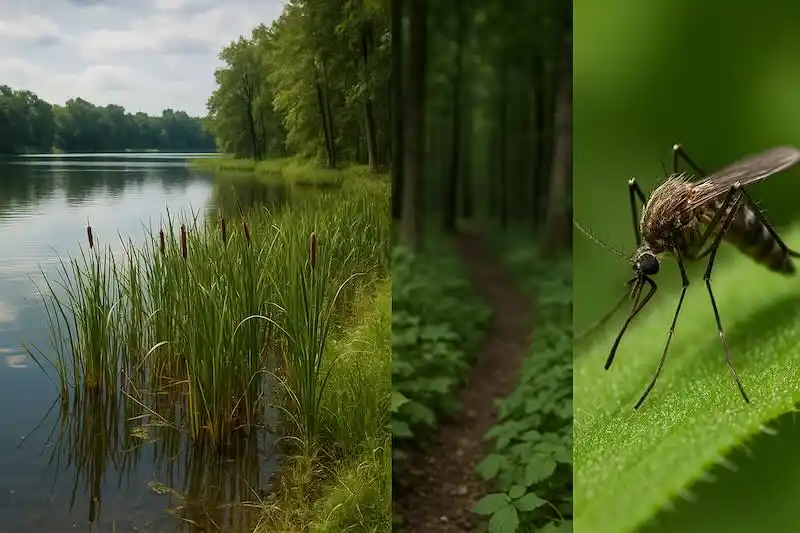If you live in Battle Creek or anywhere nearby, you already know mosquito season can be a nightmare. As soon as the weather warms up, they seem to be everywhere—your yard, your porch, even inside your home. But why are mosquitoes so bad here? And what can you do about it?
Let’s break down what makes our local mosquito season especially intense and what you should know to stay ahead of it.
1. Battle Creek's Geography Is Perfect for Mosquitoes
One of the biggest reasons mosquitoes thrive in this area is our natural landscape. Battle Creek sits in a region filled with wetlands, wooded areas, and slow-moving water. These are ideal breeding grounds for mosquitoes.
Places like Ott Biological Preserve, Leila Arboretum, and the Kalamazoo River provide both shade and moisture, which are exactly what mosquitoes need to lay eggs and multiply. Even residential neighborhoods with shaded backyards and clogged gutters can become hotspots.
2. Warm, Humid Summers Fuel the Problem
Mosquitoes love moisture and heat. Battle Creek's summer weather provides both in abundance. When temperatures rise into the 70s and 80s and the humidity kicks in, mosquito populations explode.
Even brief rainstorms create puddles and standing water in low spots, flowerpots, birdbaths, and even tire swings. Once mosquitoes find these areas, they can lay hundreds of eggs in just a few days.
3. Peak Mosquito Months in Michigan
Mosquito season in Michigan typically begins in late April or early May and can last well into October, depending on the weather. The peak months are usually June, July, and August, when warmth and moisture are at their highest levels.
During these months, it’s common to see activity not just at dusk and dawn but throughout the day in shady areas. This can make outdoor activities frustrating and even risky, depending on the level of infestation.
4. Local Areas with High Activity
Residents around Goguac Lake, Lakeview, and Riverside Park often report heavier mosquito problems due to their proximity to water and tree cover. Areas near Minges Brook or Binder Park Zoo also tend to have higher mosquito counts, especially after rain.
Even suburban backyards can become trouble zones if drainage is poor or there’s a lot of vegetation. If you live near wooded areas or low-lying land, you may notice more activity than your neighbors just a few blocks away.
5. What You Can Do About It
Knowing that Battle Creek is a prime target for mosquitoes helps explain why professional mosquito control is often the most effective solution. While personal repellents and home remedies can help, they rarely eliminate the source of the problem.
We offer targeted treatments designed for homes around Battle Creek and Calhoun County. Our approach focuses on breeding areas, yard edges, shaded vegetation, and damp zones where mosquitoes live and multiply.
Don't Let Mosquitoes Take Over Your Summer
Understanding why mosquitoes are so bad in Battle Creek is the first step to reclaiming your yard. Whether you're near a lake, surrounded by trees, or just tired of swatting all day long, a proactive plan can help.
Contact us today to learn more about mosquito control near Battle Creek. We’re here to help you enjoy your outdoor spaces all season long.









